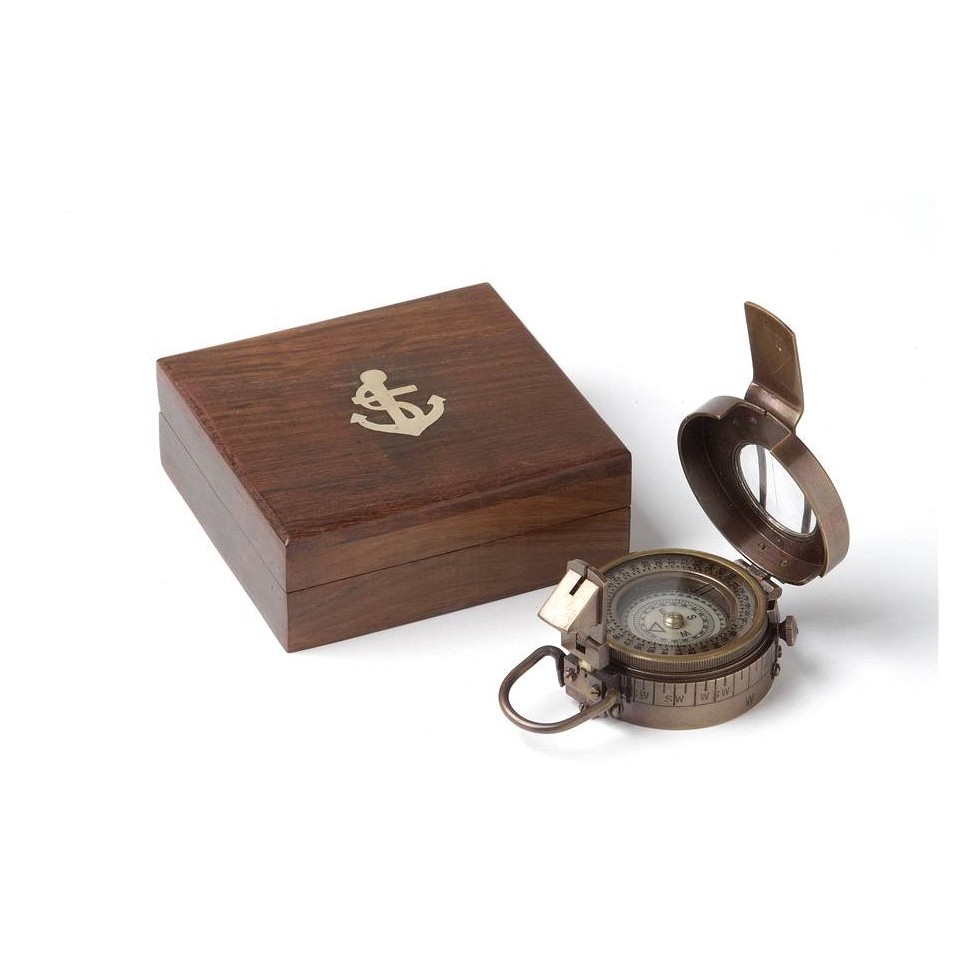



Antiqued brass "Engineering" compass and acacia wood box with anchor motif.
The compass (from the Latin "passus" ("step")) opened up the world to exploration and discovery. The principle of the magnetic needle was already known to the Chinese in the 3rd century BC and was first used by feng shui priests to tell them where and how to build. It was adapted to maritime navigation by Chinese sailors around the year 1000. The first compasses comprised a magnetic needle floating in a bowl of water, with the needle suspended on a thread or threaded through a reed. The Arabs perfected this by mounting the needle on a pivot. The compass arrived in Europe between the 10th and 11th centuries, enabling sailers to cross the oceans and explorers to discover the continents. The first instrument to resemble the modern compass is attributed to Portuguese citizen Ferrande (1483).
Antiqued brass "Engineering" compass and acacia wood box with anchor motif.
RELOJ BOLA DE CRISTAL
Ship's bell in brass with lanyard. In the past this essential instrument was used to organise life on board by regulating the duty watches. It was also used as an alarm bell in thick fog and to mark celebrations.
SHIP WHEEL CLOCK. Elegant ship wheel clock for the office in brass suspended on a wooden base. Elegant nautical object.
An exquisitely nautical object. Composed of an elegant antique brass watch and compass, this beautiful reproduction inspired by the objects of the eighteenth century will give your home a touch of elegance.
BRUNTON Pocket Transit compass. Working reproduction of the pocket transit compass invented by mining engineer D.W Brunton in 1894.Brass compass presented in lovely rosewood box with brass anchor motif inlay. The two rotating bubble levels give the declination angle reading. The needle is automatically blocked when the lid is closed.
Decoration 8-spoke ship's wheel with clock. Rosewood with 3-hand clock in brass.